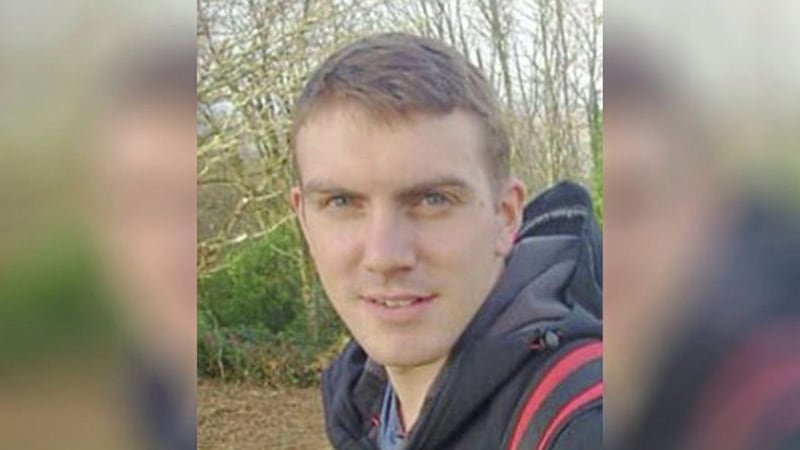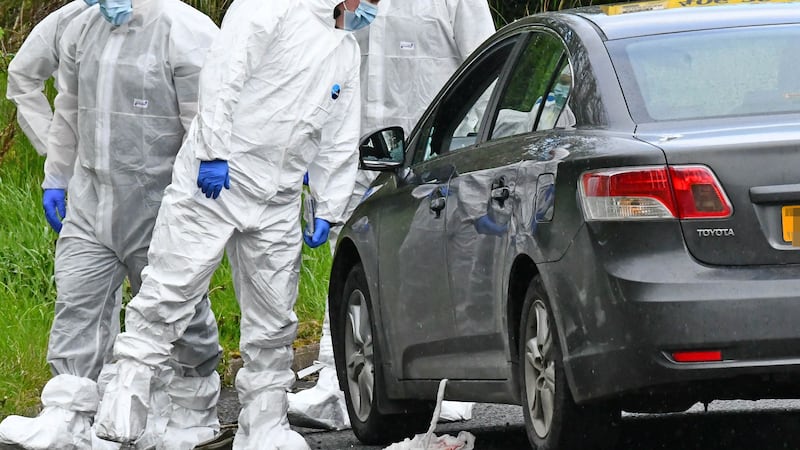A ROYAL Marine who made bombs for dissident republicans had 43 weapons hides in eight locations across England and Northern Ireland, the Old Bailey has been told.
Ciaran Maxwell (31) from Larne, stashed anti-personnel mines, mortars, ammunition and 14 pipe bombs - four of which were deployed - in purpose-built hides in Co Antrim and England where he was stationed.
He pleaded guilty to a raft of charges in February and is to be sentenced today for stockpiling weapons for dissident republicans.
Along with the 14 pipe bombs, Maxwell also hid two anti-personnel directional mines, two explosively formed projectiles (EFPs), 29 complete firing systems, 33 initiators including two military initiators, 13 military "Igniter Safety Fuze Electric" initiators, three fully constructed improvised detonators and other components parts for IEDs.
The serviceman, will be also sentenced for the preparation of terrorist acts between January 2011 and August last year, possessing images of bank cards for fraud and possessing cannabis with intent to supply, in February.
Prosecutor Richard Whittam QC said Maxwell, with an address in Exminster in Devon, had ordered chemicals and other parts over the internet for delivery to his late grandmother's house in Co Antrim.
Ammunition discovered in secret hides had been transported by him from England and Northern Ireland by ferry using his military ID to pass through security with relative ease.
An adapted PSNI pass card, a PSNI uniform and a police stab-proof vest, were also found by police in barrels and buckets buried in the ground in two forest parks.
Mr Whittam said Maxwell, who has since been discharged from the army, had apparently been motivated by "a connection with dissident republicanism".
Maxwell appeared via video link from Woodhill prison in Milton Keynes.
Mr Whittam said the serviceman had been attacked in 2002 and had a copy of a news report about the assault on his laptop.
He said: "This is an image recovered from a laptop at his home address.
"It's a report in the Republican News from July 11 2002.
"It's headed 'Sectarianism never sleeps in Larne'.
"This defendant, aged 16, being subject to a brutal attack with, as it's reported, iron bars and golf clubs and suffering a compound fracture of his skull.
"We know of nothing that traces this offending to that attack."
Maxwell was a serving Royal Marine with 40 Commando based at Norton Manor Camp in Taunton at the time of the offences and was deployed in the United States, Cyprus and the UK - but not Northern Ireland - after enlisting in 2010.
Paul Hynes QC, defending, said Maxwell accepted he was "a bombmaker and quartermaster for bomb parts".
He said the serviceman had grown up as a member of a small Catholic community in Larne and had suffered bullying during his school years because of his religion.
He also said Maxwell had been "left for dead" during an attack by a group of older men armed with hammers and clubs when he was 16 and suffered post-traumatic stress disorder he believes affected him throughout the rest of his life.
Maxwell left the north to study archaeology at the University of Newcastle but failed to complete the degree and returned home where he began to drink heavily and use recreational drugs.
In 2009 he decided to try and fulfil an "ambition" to join the Marines and, shortly before a deployment to Afghanistan, met old acquaintance Niall Lehd and told him about his career.
Mr Hynes said Mr Lehd was "interested" and later revealed he had connections to those in the Republican movement who thought Maxwell was "someone who might well be someone of use".
Maxwell feared for his life and the safety of his family if it became widely known he was in the British military, Mr Hynes said.
He added: "He (Maxwell) was building small devices and it became apparent that Mr Lehd was keen that their acquaintanceship should continue and become deeper and Mr Maxwell should take a part in what in the beginning was a rather unusual hobby."
Mr Hynes said Maxwell had not joined the Marines in order to get access to bomb parts and had, by joining the elite infantry unit and becoming a signaller, joined "the wrong branch of the military".
Maxwell, who was about to be promoted to corporal before he was discovered and discharged from the Marines, found the ammunition and detonator cables while on exercise and had not sought them out, Mr Hynes said.
And he deliberately kept the detonator devices in England rather than take them to Northern Ireland, where they could be used to make pipe bombs "ready to go".
Asked by the judge where Maxwell built the bombs, Mr Hynes said: "Principally in Northern Ireland, mostly at his grandmother's house.
"She died in 2015 but he was able to use her address before that very occasionally for a few bits and bobs.
"Essentially when he had time to himself at his grandmother's house that's what he did."








